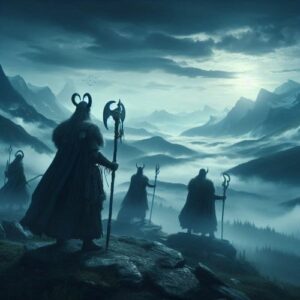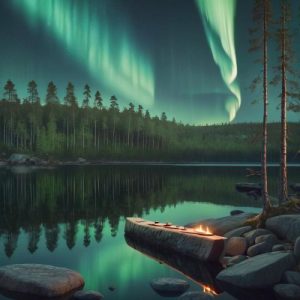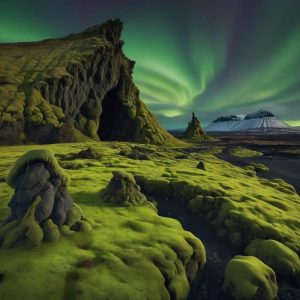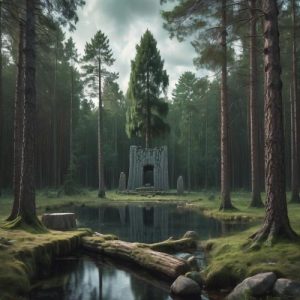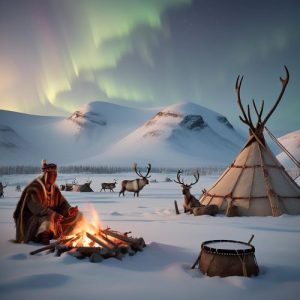Northern European Mythology
Northern European mythology is a fascinating collection of ancient beliefs, legends, and traditions that shaped the cultural identity of the region. Rooted in the harsh yet awe-inspiring landscapes of the north, these mythologies reflect a deep connection between people, nature, and the spiritual world. From the icy fjords of Iceland to the vast forests of Finland and Estonia, each tradition carries its own gods, spirits, and supernatural beings, while sharing common themes of resilience, survival, and harmony with nature. Northern European mythology is not just about grand gods and epic battles; it also speaks of everyday life, the cycle of seasons, and the unseen forces that governed the world for ancient communities.
Finnish mythology, preserved in the national epic Kalevala, is central to understanding the spiritual worldview of the Finns. It speaks of deities like Ukko, the sky god who controlled weather and fertility, and Väinämöinen, the wise, magical bard whose songs shaped the world. Closely connected to the land, Finnish mythology placed importance on natural elements such as forests, lakes, and animals, giving them a spiritual significance. Similarly, Sami mythology, practiced by the indigenous people of northern Scandinavia, is rooted in shamanism and a belief in spirits that inhabit nature. The Sami noaidi, or shaman, acted as a bridge between humans and the spirit world, calling upon deities such as Horagalles, the thunder god, or Máttaráhkká, the mother goddess who protected families. These traditions highlight a worldview where humans were inseparable from the natural and spiritual realms.
Icelandic Norse mythology is perhaps the most widely recognized strand of Northern European mythology, thanks to the Poetic Edda and Prose Edda that preserve its myths. These stories feature the mighty gods of Asgard, such as Odin, Thor, and Freyja, alongside complex tales of giants, dwarves, and mystical creatures. The Norse myths embody themes of courage, fate, and the inevitable destruction and renewal of the cosmos, culminating in the apocalyptic battle of Ragnarök. While often remembered for its warrior ethos, Icelandic Norse mythology also carries deep philosophical reflections on destiny, wisdom, and sacrifice. Its narratives, shaped by Iceland’s rugged volcanic terrain and seafaring culture, continue to influence literature, art, and popular culture worldwide, keeping these ancient tales alive in modern imagination.
Estonian mythology, though less widely known, is another integral part of Northern European mythology. Rooted in animism and oral traditions, it honors a pantheon of deities such as Taara, the sky god, and Vanemuine, the god of music and poetry. Estonian folklore is filled with stories of forest spirits, protective household beings, and mythical heroes like Kalevipoeg, the giant son of Kalev, whose adventures shaped the nation’s cultural memory. Like Finnish and Sami beliefs, Estonian mythology reflects a strong bond with the natural environment, where forests, rivers, and stones were seen as sacred. Together, these mythologies create a vibrant mosaic of Northern European spirituality, each preserving a unique cultural identity while sharing universal themes of humanity’s relationship with the divine and natural worlds. Today, Northern European mythology continues to inspire research, art, and storytelling, offering timeless wisdom and a deep sense of cultural heritage.


